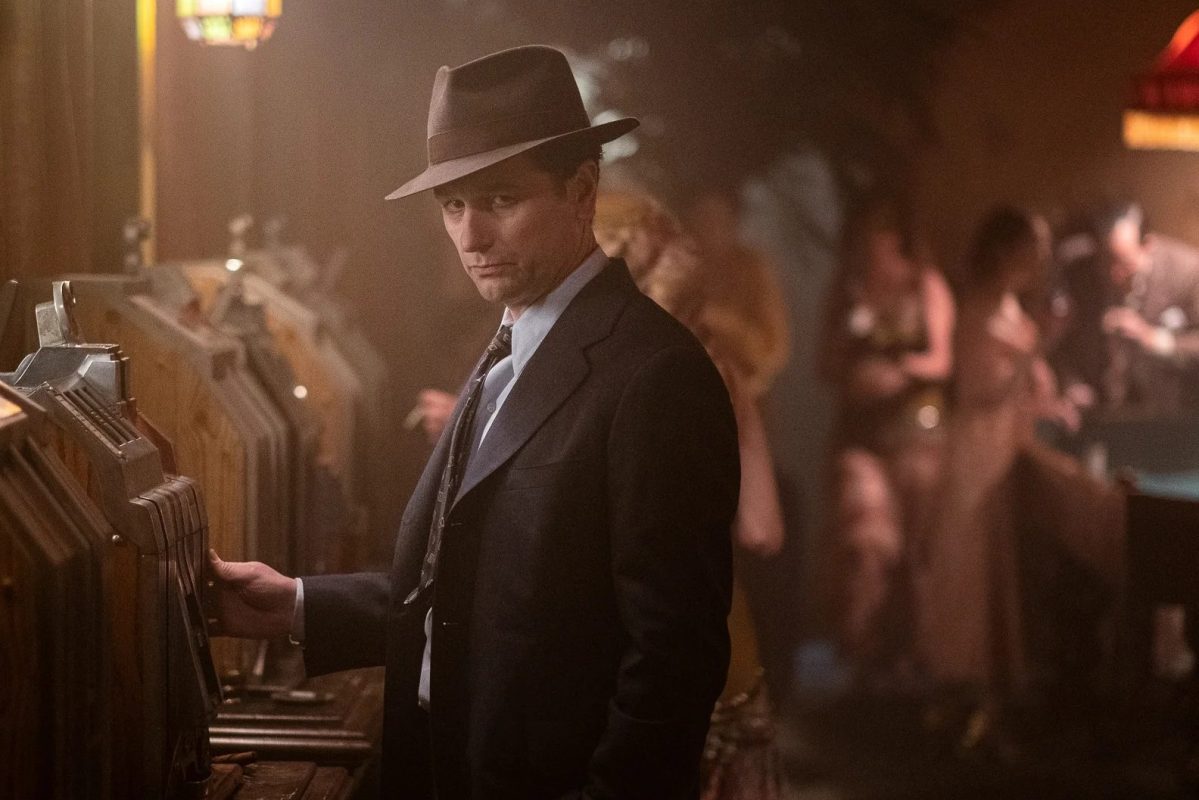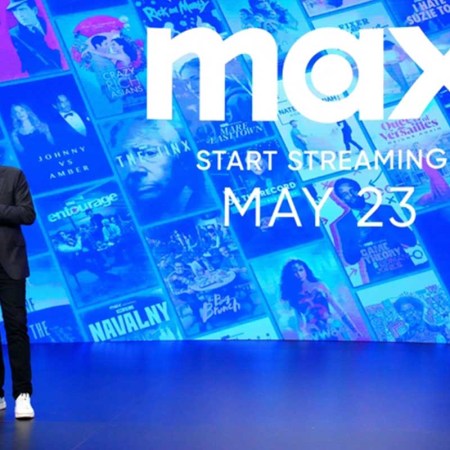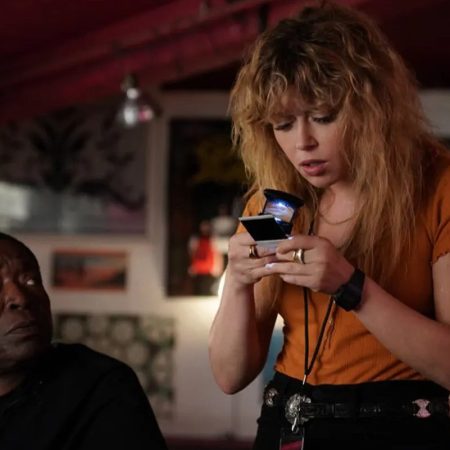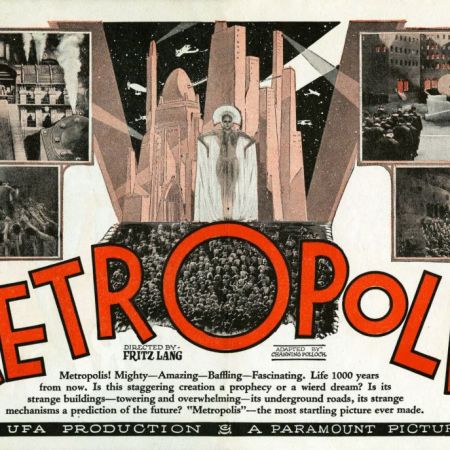Spoilers for Season 2 of Perry Mason below.
Succession isn’t the only HBO drama firing on all cylinders right now. The Matthew Rhys-fronted Perry Mason reboot just wrapped its expansive and ambitious sophomore effort with one hell of a satisfying conclusion.
Throughout the 1930s-set season, Mason takes on the case of two Mexican teens — Mateo and Rafael Gallardo —accused of murdering prominent Los Angeles socialite Brooks McCutchen (Tommy Dewey). The crime naturally allows for a ripe exploration of weighty themes, including class, corruption and the illusion of justice. Throughout the case, Mason works with his stalwart companions: legal secretary Della Street (Juliet Rylance) and investigator Paul Drake (Chris Chalk), just like in the old series.
The wider aperture of the season is by design. New showrunners — Michael Begler and Jack Amiel of the underseen but masterful series The Knick — returned to doing another prestige period drama. The shift immediately benefited the show, as the Begler/Amiel era helped to soften the deathly serious tone Mason cultivated in its debut season. Along the way, the series became a compelling ensemble drama with plenty of meaty stories for Rylance, Chalk, a returning Shea Whigham and new players like Paul Raci and Hope Davis.
The brilliance of the season lies in Begler and Amiel’s structure, which reveals relatively early on that the Gallardo brothers committed the murder. The shift then becomes a search for the “why” of it all, leading Mason, Street and Drake headfirst into a conspiracy that reaches the top of the LA social scene. The trio eventually discovers Davis’s Camilla Nygaard as the orchestrator of Brooks’s murder, hiring a series of third parties to pay the brothers for the hit. Further complicating matters is the fact Mason hid the murder weapon in his office while trying to find a way to save the Gallardos by unraveling Nygarrd’s schemes. The gun is eventually discovered and brought to the judge, jeopardizing the case. The finale picks up with Perry making a Hail Mary play: He offers himself up to the judge to take the fall for the gun, earning a four-month prison sentence. The choice gives enough of a stall for the trio to convince district attorney Hamilton Burger (Justin Kirk) to only sentence one of the boys instead of both. It’s muted ending but one that feels well-earned.
In the wake of the finale, InsideHook spoke to Begler, who wrote the episode, about how he and Amiel approach endings, getting Davis attached to the series, Perry’s thought process, the thrill of doing historical research, how they decide where to place the series title card on an episodic basis, and much more. This interview has been edited for clarity.
InsideHook: I want to start with how you and Jack approach constructing endings. What is your typical process? Did that differ for this than it has in the past?
Michael Begler: It’s a journey. For us, this was a different type of show to do. We’ve never really done a courtroom drama. We’ve never done a mystery before. There’s so much history behind the show, not only in season one but with the books and the old TV show. How do you honor all of that? We started with — to us in doing the research of the time — what’s going to be the most compelling case and then sort of turning it on its ear? I think we came [with] the idea of, you think of Perry Mason as the guy who defends the innocent. What happens when he defends the guilty and sort of letting that lead the charge.
We probably had at least four or five different ideas of how to end it and had to keep going back, figuring it out, taking a couple steps back, and looking at it in its totality because it’s tricky. It’s so tricky to do a mystery, to make all the pieces land where they need to land. At a certain point, it took the form it needed to. At one point, we were going to hold the reveal until the way, way end but then, just the way the story was starting to lay out. It felt like revealing Camilla at the end of seven felt better than eight.
You bring up Camilla, which leads me to a question I had about Hope Davis. Do you write with performers in mind ahead of time? Or was this a situation where Hope came in and did like a tape or something?
It was mostly the latter of the latter. She’s Hope Davis; she doesn’t need to audition. I think we approached her. We wrote the scripts first, and as we were talking about [casting], her name came to the top of the pile. We were like, “We would die for her to do it.” She brought it to that next level. Even once she decided to do it, we’re still writing because we’re months away from shooting. It’s not until you see it and you go, “Oh, wow. I didn’t even see it like that.” That’s the joy of it, for sure.
Was everything done at that point? Or did you have some flexibility to tailor the scripts to her strength on the fly as you were in production?
Oh, we definitely tailored. I can absolutely remember having conversations with her about certain things that she started to see in the character that she wanted to bring out. Specifically, I remember being on set, we were shooting the scene between her and Lydell [Paul Raci] at the luncheon. She said, “I want Camilla to take some digs at Lydell. I want to see those claws come out a little bit but not in such an obvious way.” So she says this stuff about the shame that you must have felt when that was said in court. All that ugliness that came out, all those little jabs at him. That came out of conversations with her, which I thought was a very astute sort of note.
Perry’s decision to offer himself up to Judge Durkin is a big one. In your mind, is that something Perry came to at the moment? Do you believe he had spent a lot of time thinking about and considering it?
I don’t think he gave it that much time because he didn’t have time. They see that they’re out of time and that there needs to be one more move. If Durkin is going to rule, he’s got to find a way to save these boys. This is a guy who’s desperate not to lose another life. If you think about what he went through in the war that we see in season one, deciding to shoot these guys — even if he believed in the moment it’s the right decision, he’d still probably harbor some guilt of like, “Maybe I could have saved one of them.” What happened with Emily Dotson — he’s haunted by that through the season. I think that having someone’s life in his hands, he needed to find any way to save them. I think that’s what led him to say, “I’ve got to fall on the sword,” to a certain degree.
Do you think he’s ultimately content with that choice? The way Matthew plays it, in that final scene [of the season], there does seem to be some semblance of peace about him in that moment.
The whole point was that he goes in with his head held high. There’s a great moment in the third episode when Lydell says to him at the race track, “Even when you win, you lose.” What we loved is that by this point, it’s the opposite for him. It’s even when you lose, you win. He knows he did the right thing. By putting that picture up on the wall of him and his son, he’s saying, “Okay, this is a lesson I need to instill on my son, this sort of sense of morality. I’m coming into who I am. I’m becoming the Perry Mason that I need to be,” like the audience is rooting for him to be if we’re so lucky to get a third season.
The Story Behind a Former Vice Detective and His Alleged Brothel Empire
Ludwig Paz is accused of running a syndicate of prostitution and gambling that spanned Brooklyn and Queens.When it comes to morality, that’s something I found striking about the central tenant of the crime. I think Mateo’s speech [in the finale] drives that home that this act is done out of absolute desperation. It’s wrong, but there’s something fundamentally understandable about it. How do you try to find a balance between those two things? It seems very, very tricky.
Oh, absolutely. Absolutely. What you hope in writing it is that you care about these guys. We hope that comes across just how hard their life has been and how much Brooks took away. Nobody is condoning the shooting of Brooks McCutchen. Like Perry says, “You took a life. There’s no taking that back.” But you can understand what led to that decision: their farm taken away, their apartment raided and burnt down, their sister dying, Rafael scarred for life. All for an empty stadium. Where does that leave them? There’s no work. Rafael can draw as many pictures of the injustice done to his people as he wants, but what is that gonna get him?
We played around with a moment — this is one of our many endings — where Sophia says to Matteo as they’re deciding to do this, “Somebody’s going to shoot him. It might as well be us. He’s taken so much. Somebody’s going to do it, we might as well get something out of this.” At that point, it’s kind of understandable, because of what we’ve hopefully set up throughout, that there is no black and white here. Milligan wants to see the case in black and white. Perry is trying to show everybody [that] it’s so gray.
I read an interview with Chris Chalk where he recently talked about how this season helped illuminate the idea that the more things change, the more they really stay the same. Is that a feature and not a bug for you? Is that something you’re intentionally trying to draw out the comparison between when you’re writing things out?
That’s just the beauty and the unfortunate thing about history and humanity: it doesn’t change that much. We were looking at what was going on in Los Angeles in that time. When you when you read about it, you can’t help but make those comparisons. You can’t help but see those parallels because they just exist. That helps our storytelling because you want your show to be entertaining. But the fact that you get this bonus, ripple effect of that reflection, is great.
Regarding the historical elements of this and something like The Knick, is going back and doing the research something you enjoy?
God, dude, it’s the best. It’s the best. [Reaches behind him and pulls out a small book] This is from The Knick. This is the first thing I ever bought when I started doing the research, and I keep it on my desk. It’s a medical book from 1900, and I read this thing cover to cover. [It’s] just fascinating because you just cannot make this stuff up. When you start reading the papers from the era — I know we don’t have a lot of time, but I could tell you stories that are so mind-blowing from this era of things that I read that we didn’t even include in this season. It just makes storytelling so much fun.
Half the fun of writing anything is doing that research, that exploration.
There’s this amazing book called Dark City that Tashan put out, which is about LA from the ’30s to the ’50s and all that dark stuff. And it’s, man, it’s beautiful.
Speaking of The Knick, I was excited to see that you guys were coming into Season Two because of the relationship you were able to build with Juliet over the course of that show. What it was like to work with her again and then gift her this extraordinary moment later in the season, with her examination in the courtroom?
It was fantastic. I loved Juliet from what she did on The Knick; I thought she brought so much to that character of Cornelia. Taking nothing away from her performance on The Knick, I felt like Della is actually a more complicated character and requires more nuance in terms of acting. I thought that she brought it. To have a little bit of that shorthand with one of the main actors on the show was absolutely helpful. We quickly fell in love with Matthew and Chris for sure, but it’s just a bonus to have that relationship going and knowing her strengths, knowing what she can do, and then being surprised at what she’s able to do since doing The Knick.
I think we’re getting close to time so I want to make sure I ask what I think might be the most difficult question you’ll get today: How do you decide where to put the title card?
[Laughs.] It’s a committee decision by me, Team Downey and Shine, who’s the company that makes the title card and those incredible end credits. We all sort of say it. There’s a lot of emails that go back and forth about it — more than you want to know.
Waiting to see where and how it’s deployed is such a joy.
I think my favorite is episode five when it comes through the bars of Mateo’s cell.
That’s a really good one. I also enjoy the one — it’s either in six or seven — when they’re walking on the beach.
Oh, seven! Yeah, he throws the cigarette.
You spoke about trying some different things leading up to the finale, but was there one scene in particular that was harder to break than the others?
Definitely the closing statements, getting Perry’s right. Matthew and I talked a lot about getting the tone right: What he needs to say, what he’s trying to say; we went around and around on that one. The scene with him and Della, too. When they are having the drink afterward and what they’re saying to each other. That was another big moment. Those two and then also the first scene in the office, when they’re all trying to figure it out. Where do they all come down, and Della’s reaction to learning the truth — all of that was tricky. Not only in writing but in the editing of it, making sure that we get the emotional beats just right on that.
Was there something that Matthew said about the speech that unlocked it for you?
When he’s talking to Della, I can definitely say that because I remember we talked about this. It was right around Roe v. Wade when all that was going down last spring. We were just talking about how much people have been fighting, the disappointment, and like, “What does this mean? Where do we go from here?” I think he was talking to a friend like, “Well, even though a decision comes down, it doesn’t mean you don’t stop fighting. Because if you fight, that means that you still have hope.” And taking that idea and running with it. That was the key, which leads them into talking about that and leads him into [keeping] his head held high and in jail.
This article was featured in the InsideHook newsletter. Sign up now.
























